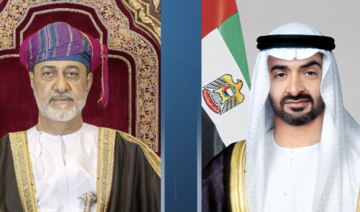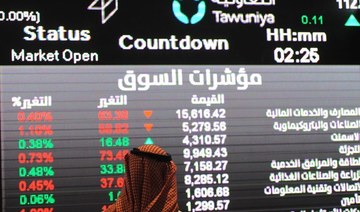SINGAPORE: At least two tankers have ferried Iranian fuel oil to Asia in recent months despite U.S. sanctions against such shipments, according to a Reuters analysis of ship-tracking data and port information, as well as interviews with brokers and traders.
The shipments were loaded onto tankers with documents showing the fuel oil was Iraqi. But three Iraqi oil industry sources and Prakash Vakkayil, a manager at UAE shipping services firm Yacht International Co, said the papers were forged.
The people said they did not know who forged the documents, nor when.
The transfers show at least some Iranian fuel oil is being traded despite the reimposition of sanctions in November 2018, as Washington seeks to pressure Iran into abandoning nuclear and missile programmes. They also show how some traders have revived tactics that were used to skirt sanctions against Iran between 2012 and 2016.
"Some buyers...will want Iranian oil regardless of U.S. strategic objectives to deny Tehran oil revenue, and Iran will find a way to keep some volumes flowing," said Peter Kiernan, lead energy analyst at the Economist Intelligence Unit.
While the United States has granted eight countries temporary waivers allowing limited purchases of Iranian crude oil, these exemptions do not cover products refined from crude, including fuel oil, mainly used to power the engines of large ships.
Documents forwarded to Reuters by ship owners say a 300,000 tonne-supertanker, the Grace 1, took on fuel oil at Basra, Iraq, between Dec. 10 and 12, 2018. But Basra port loading schedules reviewed by Reuters do not list the Grace 1 as being in port during those dates.
One Iraqi industry source with knowledge of the port's operations confirmed there were no records of the Grace 1 at Basra during this period.
Reuters examined data from four ship-tracking information providers - Refinitiv, Kpler, IHS Markit and Vessel Finder - to locate the Grace 1 during that time. All four showed that the Grace 1 had its Automatic Identification System (AIS), or transponder, switched off between Nov. 30 and Dec. 14, 2018, meaning its location could not be tracked.
The Grace 1 then re-appeared in waters near Iran's port of Bandar Assaluyeh, fully loaded, data showed. The cargo was transferred onto two smaller ships in UAE waters in January, from where one ship delivered fuel oil to Singapore in February.
Shipping documents showed about 284,000 tonnes of fuel oil were transferred in the cargoes tracked by Reuters, worth about $120 million at current prices.
Officials at Iran's oil ministry declined to comment.
Singapore customs did not respond to requests for comment.
The Grace 1, a Panamanian-flagged tanker, is managed by Singapore-based shipping services firm IShips Management Pte Ltd, according to data. IShips did not respond to several requests for comment via email or phone.
A Reuters reporter visited the office listed on IShips' website but was told by the current tenant that the company had moved out two years earlier.
The ship-tracking data analysed by Reuters showed the Grace 1 emerged from the period when it did not transmit its location almost 500 kilometres south of Iraq. It was close to the Iranian coast with its draught - how deep a vessel sits in water - near maximum, indicating its cargo tanks were filled.
The Grace 1 transferred its cargo to two smaller tankers between Jan. 16 and 22 in waters offshore Fujairah in the UAE, data showed.
One of those vessels, the 130,000 tonne-capacity Kriti Island, offloaded fuel oil into a storage terminal in Singapore around Feb. 5 to 7. Reuters was unable to determine who purchased the fuel oil for storage in Singapore.
The Kriti Island is managed by Greece's Avin International SA.
The tanker was chartered by Singapore-based Blutide Pte for its voyage to Singapore, Avin International's Chief Executive Officer George Mylonas told Reuters. Mylonas confirmed the Kriti Island took on fuel oil from the Grace 1.
There is no indication that Avin International knowingly shipped Iranian fuel oil. Mylonas said his firm had conducted all necessary due diligence to ensure the cargo's legitimate origin.
Mylonas emailed Reuters a copy of a Certificate of Origin (COO) that he said was provided by the charterers – referring to Blutide - showing the Grace 1 loaded fuel oil at Basra on Dec. 10 and 12, 2018.
"The Certificate of Origin and all the information obtained did not reveal any connection with Iran, let alone that the cargo of fuel oil originated" from there, Mylonas wrote.
Mylonas said the Grace 1's owners, managers, shippers, receivers and charterers were screened by Avin International. "There were not circumstances that would make the COO of dubious origin," he said via email.
He said he had been told by the charterers that the Grace 1 only stopped in waters off Iran in late December and early January for "repairs of damaged diesel generators" before sailing to Fujairah.
The document provided by Mylonas says Iraq's state oil marketer SOMO certified the Grace 1 in December loaded a total of 284,261 tonnes of Iraqi fuel oil.
Reuters shared the document with a SOMO official in Iraq who said it was "faked" and "completely wrong". The official declined to be identified by name, citing the marketer's communications policy.
Two other Iraqi oil industry sources with direct knowledge of Basra port and oil industry operations also said the documentation was forged.
The two sources said the document bore the signature of a manager who was not working at Basra port on the stated dates. The document also bears contradictory dates: It indicates a loading period of Dec. 10 and 12, 2018 but a sign-off date for the transaction of Jan. 12, 2018.
Data showed the second tanker into which the Grace 1 transferred cargo was the Marshal Z, also a 130,000-tonne vessel.
It was bound for Singapore in the first half of February but changed course on Feb. 15, parking off western Malaysia. Reuters was unable to determine who owns the Marshal Z, nor who chartered it.
Around Feb. 25, the Marshal Z transferred its cargo to another vessel called the Libya, owned and managed by Tripoli-based General National Maritime Transport Company (GNMTC).
A GNMTC spokesman said the Libya was chartered by Blutide, the same Singapore firm that chartered the Kriti Island.
Blutide registered as a company in Singapore on May 14, 2018. Its sole listed shareholder and only director, Singaporean Basheer Sayeed, said by telephone on Feb. 7 he was retired and not in a position to comment on the company's activity.
The Libya's owner GNMTC "was not aware, at any stage that the cargo is linked in any way to Iran," the company's spokesman said via email.
GNMTC provided Reuters with a copy of a COO that it said was issued by shipping services company Yacht International, based in Fujairah, showing the Marshal Z loaded Iraqi-origin fuel oil during a ship-to-ship transfer in UAE waters on Jan. 23.
However, Yacht International shipping manager Prakash Vakkayil said in an email his firm did not issue the certificate and "considers it to be forged".
The GNMTC spokesman did not respond to follow-up questions from Reuters.
Iran lays false trail to dodge US sanctions
Iran lays false trail to dodge US sanctions
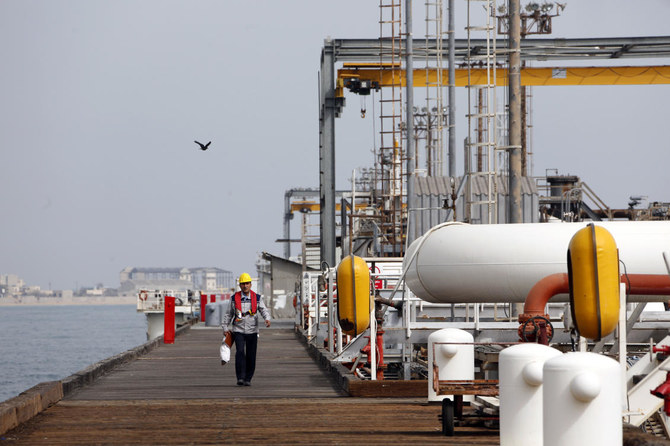
- Supertanker shipped fuel oil under forged Iraqi papers
- Ship not in Basra port during cited loading period
UBS gets green light to open Saudi branch for banking operations
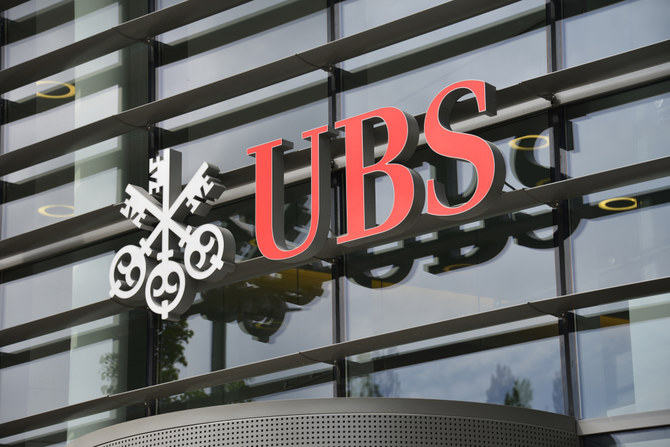
RIYADH: In a move aimed at enhancing Saudi Arabia’s financial landscape, the Kingdom has granted permission for a branch of the Swiss bank UBS to operate within the nation.
According to the Saudi Press Agency, the approval was granted during a session chaired by the Custodian of the Two Holy Mosques, King Salman bin Abdulaziz Al-Saud, held by the Cabinet in Jeddah on April 23.
The session commenced with King Salman briefing the Cabinet on the recent communications and discussions held between the Kingdom and several countries regarding shared relations, regional issues, and global developments, as reported by SPA.
In this context, the Cabinet reaffirmed Saudi Arabia’s steadfast stance toward promoting security and stability in the region and the world.
The Minister of Media, Salman bin Yousef Al-Dossary, stated in a press release following the session that the Cabinet praised the outcomes of the second ministerial meeting of the dialogue between the Gulf Cooperation Council countries and Central Asian countries.
He emphasized the Kingdom’s commitment to continue strengthening communication channels with various countries worldwide and supporting areas of joint coordination, including multilateral efforts.
Additionally, the Cabinet expressed its appreciation for the participants of the forthcoming World Economic Forum special meeting, set to take place in Riyadh in the upcoming week, highlighting the Kingdom’s dedication to encouraging global collaboration and tackling shared challenges.
Moreover, the Cabinet announced that the World Bank had selected Saudi Arabia as a center for knowledge dissemination to promote worldwide awareness of economic reforms, underscoring its leadership in achieving significant progress in global competitiveness indicators.
Al-Dossary further highlighted that the Cabinet applauded the achievement of five Saudi cities in obtaining advanced positions in the 2024 Smart Cities Index.
Following today’s session, the Cabinet approved cooperation agreements with Qatar, the Dominican Republic and the UK as well as Turkey, Chad, Portugal, Hong Kong, and Yemen.
Additionally, the body authorized discussions regarding statistical collaboration with Australia and maritime cooperation with Egypt. It also endorsed anti-corruption agreements with South Korea, archival partnerships with Greece, and financial technology collaboration with Singapore.
Authorization was granted for negotiations on science and technology cooperation with the Bahamas. A unified law for international road transport within GCC countries was approved, and additional compensation was granted to Tabah village’s affected families in the Hail region.
Furthermore, final accounts for various government entities were approved.
UAE and Oman establish $35bn investment partnerships across multiple sectors
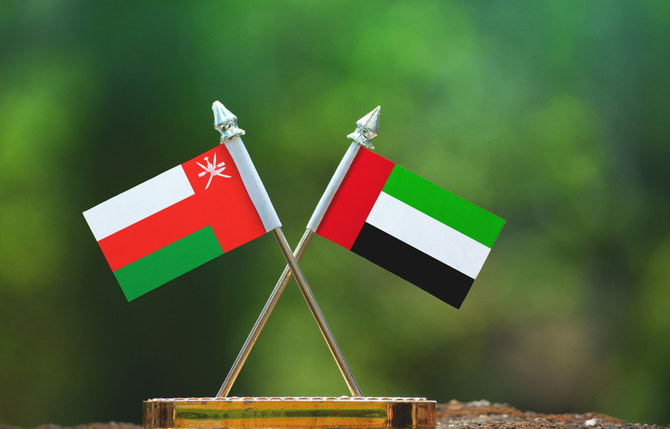
RIYADH: Trade and economic ties between the UAE and Oman are set to further strengthen thanks to the signing of investment deals worth 129 billion dirhams ($35.12 billion).
According to a press statement, these agreements cover multiple sectors, including renewable energy, green metals, railway, digital infrastructure, and technology investments.
Economic ties between the UAE and Oman have remained robust in recent years, with non-oil trade volumes reaching approximately 50 billion dirhams in 2023.
“The UAE and Oman have strong historical relations that are founded on shared values, goals and principles. The agreements represent a major milestone in our bilateral ties, as they pave the way for us to leverage our collective strength to realize our shared vision of advancement and prosperity,” said Mohamed Hassan Al-Suwaidi, UAE’s minister of investment.
One of the major agreements signed by both countries was an industrial and energy megaproject valued at 117 billion dirhams. This project encompasses renewable energy initiatives, including solar and wind projects, alongside green metals production facilities.
The deal’s signatories included Abu Dhabi National Energy Co., Abu Dhabi Future Energy Co., and Emirates Global Aluminium, as well as Emirates Steel Arkan, OQ Alternative Energy, and Oman Electricity Transmission Co.
Another agreement, valued at 660 million dirhams, was signed between Abu Dhabi Developmental Holding Co. and Oman Investment Authority to establish a technology-focused fund.
A UAE-Oman rail connectivity project, valued at 11 billion dirhams, was also inked by both countries.
Additionally, UAE’s Ministry of Investment and the Ministry of Commerce and Trade signed another deal with Oman’s Ministry of Investment Promotion to cooperate in multiple sectors, including digital infrastructure, food security, and energy.
Etihad Rail, Mubadala, and Omani Asyad Group Co. signed a shareholding partnership valued at 3 billion dirhams.
Both countries also announced the formation of a UAE-Oman alliance to enhance bilateral economic and trade relations.
The UAE’s Ministry of Investment, in the press statement, further noted that the signing of these agreements will serve to bolster relations across key sectors and foster socio-economic benefits, contributing toward a stable and prosperous future for both countries.
Influx of Chinese models to drive Mideast EV sales amid global surge
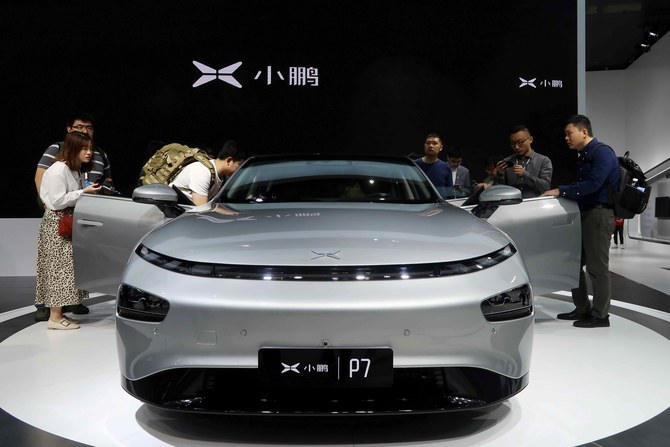
- The IEA report disclosed that global EV sales grew by approximately 25 percent in Q1 of 2024
RIYADH: The entry of Chinese car models in the Middle East could drive regional electric vehicle sales, as global figures are projected to reach 17 million units by 2024.
According to the latest International Energy Agency report, this marks a 21.42 percent increase from the previous year, with nearly 60 percent of new electric car registrations in 2023 occurring in China, followed by 10 percent in the US and 25 percent in Europe.
“The continued momentum behind electric cars is clear in our data, although it is stronger in some markets than others. Rather than tapering off, the global EV revolution appears to be gearing up for a new phase of growth,” said Fatih Birol, executive director of the IEA.
The Global EV Outlook 2024 stated that the electric car market in Africa, Eurasia, and the Middle East is still in its nascent stage, with such vehicles representing just under 1 percent of total sales in these regions.
However, the decision of Chinese carmakers to explore these regions, along with producing vehicles domestically, could change this trend, allowing the market to expand in the coming years.
“In Uzbekistan, BYD (Chinese automaker) set up a joint venture with UzAuto Motors in 2023 to produce 50,000 electric cars annually, and Chery International established a partnership with ADM Jizzakh,” stated the IEA in the report.
This partnership has already led to a steep increase in electric car sales in Uzbekistan, reaching around 10,000 in 2023.
It added: “In the Middle East, Jordan boasts the highest electric car sales share, at more than 45 percent, supported by much lower import duties relative to ICE (internal combustion engine) cars, followed by the UAE, with 13 percent.”
Moreover, in July last year, Saudi Arabia’s Ministry of Investment signed a $5.6 billion deal with Chinese electric car maker Human Horizons to collaborate on the development, manufacture, and sale of vehicles.
Steady growth
The IEA report disclosed that global sales of electric cars grew by approximately 25 percent in the first quarter of this year compared to the same quarter in 2023.
Highlighting the growth of the EV market, the report revealed that the number of electric cars sold globally in the first three months of this year is roughly equivalent to the total units sold in 2020.
The steady growth in the first quarter of this year was driven by China, with 1.9 million EVs sold, marking a 35 percent rise compared to the same period in 2023.
In Europe, the first quarter of 2024 witnessed year-on-year growth of over 5 percent, slightly surpassing the growth in overall car sales and thus maintaining the EV sales share at a similar level to that of last year.
The US also experienced a 15 percent increase in sales in this segment during the first three months of this year, compared to the same period in 2023.
According to Birol, the rise in investments in the electric battery sector is a strong indication of the rise of the EV appetite globally.
“The wave of investment in battery manufacturing suggests the EV supply chain is advancing to meet automakers’ ambitious plans for expansion. As a result, the share of EVs on the roads is expected to continue to climb rapidly,” said the executive director of IEA.
He added: “Based on today’s policy settings alone, almost one in three cars on the roads in China by 2030 is set to be electric, and almost one in five in both the US and the EU. This shift will have major ramifications for both the auto industry and the energy sector.”
EV prices to fall
The report highlighted that the pace of the transition to EVs may not be consistent and will hinge on affordability.
IEA added that manufacturers have taken significant steps to deliver on the strengthening EV ambitions of governments by making significant financial commitments.
“Thanks to high levels of investment over the past five years, the world’s capacity to produce batteries for EVs is well positioned to keep up with demand, even as it rises sharply over the next decade,” said the report.
According to the intergovernmental organization, more than 60 percent of electric cars sold in 2023 were already less expensive to buy than their conventional equivalents in China.
However, the purchase prices for cars with internal combustion engines remained cheaper on average compared to EVs in the US and the EU.
The report suggested that intensifying market competition and improving battery technologies are expected to reduce the prices of electric cars in the coming years.
“Even where upfront prices are high, the lower operating costs of EVs mean the initial investment pays back over time,” said IEA.
Moreover, growing electric car exports from Chinese automakers, which accounted for more than half of all electric car sales in 2023, could add to downward pressure on purchase prices.
IEA also underscored the vitality of ensuring the availability of public charging slots to maintain the steady growth of the electric car market globally.
According to the report, the number of public charging points installed globally was up 40 percent in 2023 compared to 2022, and growth for fast chargers outpaced that of slower ones.
However, IEA added that charging networks globally need to grow sixfold by 2035 to meet the level of electric vehicle deployment in line with the pledges made by governments.
“At the same time, policy support and careful planning are essential to make sure greater demand for electricity from charging does not overstretch electricity grids,” concluded the report.
Closing Bell: Tasi slips for the second consecutive day
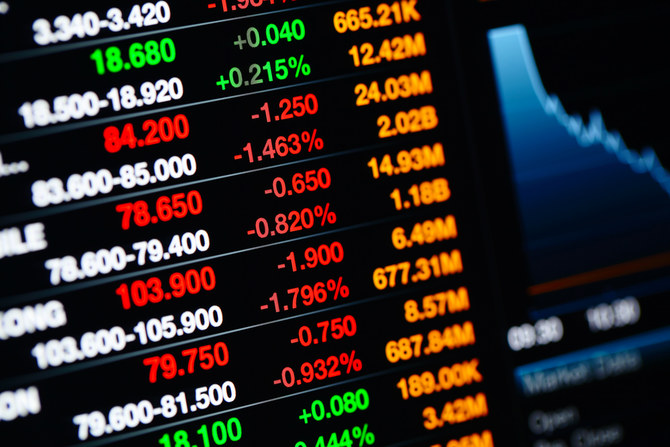
RIYADH: Saudi Arabia’s Tadawul All Share Index continued its downward trend for the second consecutive day as it shed 24.52 points to close at 12,484.41.
The total trading turnover of the benchmark index was SR8.44 billion ($2.25 billion), with 71 of the listed stocks advancing and 157 declining.
On the other hand, Saudi Arabia’s parallel market Nomu gained 95.74 points on Tuesday to close at 26,691.96.
However, the MSCI Tadawul Index slipped by 0.24 percent to 1,563.40.
The best-performing stock of the day was United Cooperative Assurance Co. The firm’s share price rose by 6.67 percent to SR13.44.
Other top performers include Etihad Atheeb Telecommunication Co. and Gulf Union Alahlia Cooperative Insurance Co., whose share prices surged by 4.84 percent and 4.54 percent, respectively.
The worst performer in the main market was Fitaihi Holding Group, as its share price slipped by 4.77 percent to SR4.19.
The parallel market’s positive performance was driven by Osool and Bakheet Investment Co., whose share price soared by 7.83 percent to SR36.50.
On the announcements front, Middle East Paper Co. said it has started its cardboard factory project, which will have a production capacity of 450,000 tonnes.
In a statement to Tadawul, MEPCO revealed that the feasibility study for the project has been completed with a final budget of SR1.78 billion.
The company went on to say that the undertaking would be completed in 42 months.
The initiative will be funded by the MEPCO’s internal resources, by long-term loans from local banks and the use of funds resulting from the issuance of the shares to Saudi Arabia’s Public Investment Fund, the statement added.
Meanwhile, in another statement, MEPCO revealed that it signed another agreement with J.M. Voith SE & Co. KG, for manufacturing, supplying and supervising the installation of the main machine for the cardboard project.
Egypt increases funding needed in 2024-2025 budget by over $59bn
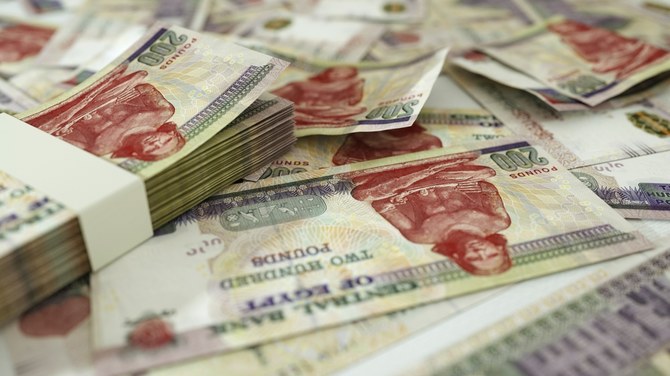
RIYADH: Egypt has increased the amount of funding required in its 2024-2025 budget by over 2.8 trillion pounds ($59 billion) following successive shock waves.
In the financial statement of the new draft budget, Minister of Finance Mohamed Maait highlighted that the changes are reflective of the continuous struggles that the North African country has been facing following the COVID-19 epidemic.
The added funding aims to alleviate the inflationary effects that have been burdening the Egyptian public, improve the standard of living, and meet the developmental needs of citizens, the report said.
The allocation of spending in the budget will also seemingly reflect the needs of individuals by increasing spending on health and education and aiming to improve job opportunities.
Egypt’s economy has witnessed blows over the last half year due to the ongoing crisis in Gaza, which has slowed tourism growth and cut into Suez Canal revenue, two of the country’s biggest sources of foreign currency.
Amid a staggering shortage of foreign currency and rapidly increasing inflation, the challenges prompted the International Monetary Fund to expand its financial support to Egypt to $8 billion in an attempt to shore up the country’s economy.
In a statement in March, the IMF board said its decision would enable Egypt to immediately receive about $820 million.
Similarly, the UAE, represented by a private consortium led by the Abu Dhabi Developmental Holding Co., signed a landmark agreement with Egypt in February to invest $35 billion in Ras El-Hekma, a region on the Mediterranean coast 350 km northwest of Cairo.
Since securing the deal, which marked the single largest foreign direct investment in the North African country, the nation launched some long-sought reforms with the central bank delivering a 600 basis-point interest rate hike and a pledge to unshackle its currency alongside a devaluation.
This led S&P Global Ratings to note that it has been encouraged by the rush of financial support to Egypt, therefore lifting its economic outlook for the country to positive from stable after the long-awaited currency devaluation, which is poised to ease foreign currency shortages.






